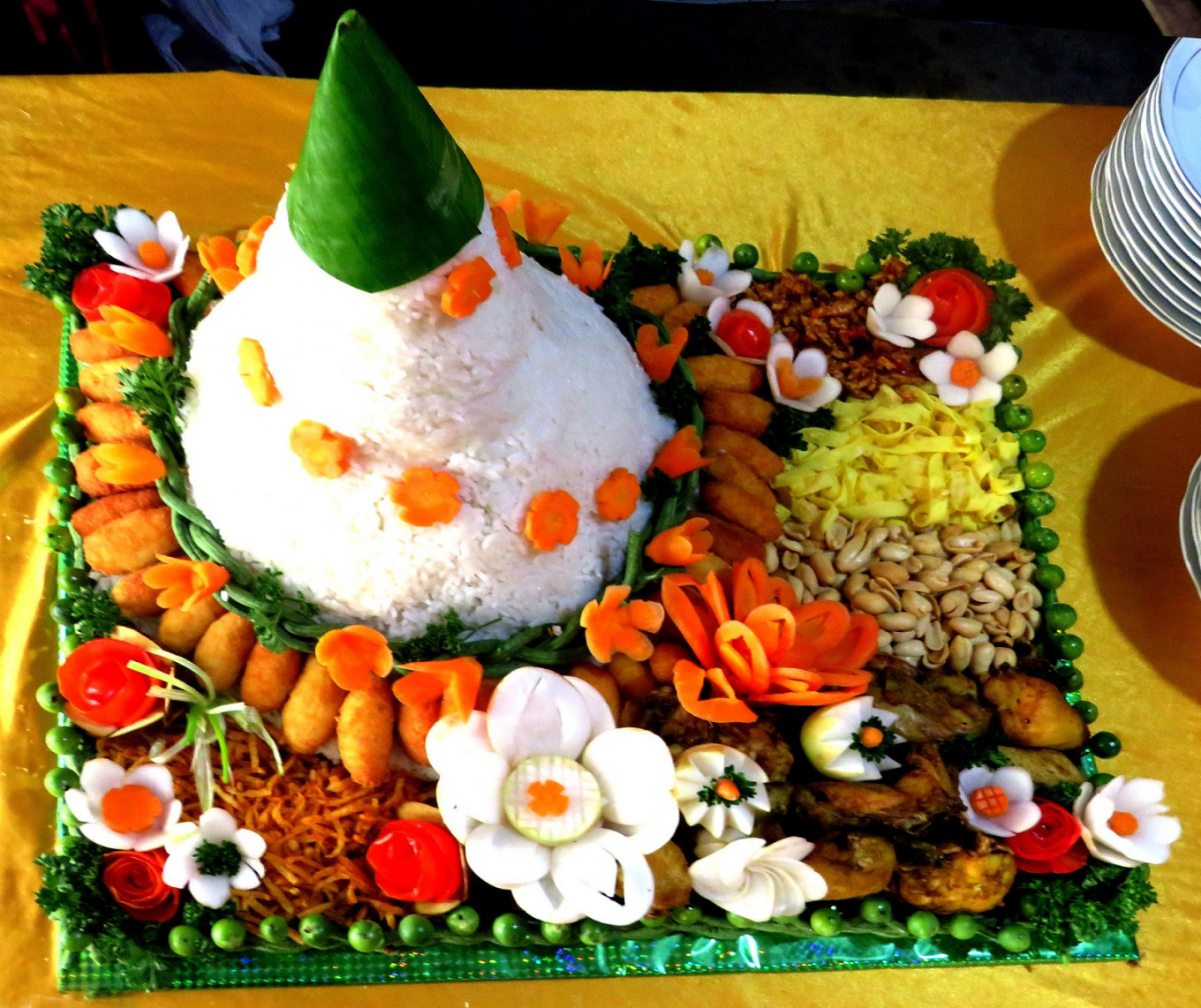Popular Reads
Top Results
Can't find what you're looking for?
View all search resultsPopular Reads
Top Results
Can't find what you're looking for?
View all search resultsGastrodiplomacy and cultural diplomacy
Gastronomic diplomacy is different from culinary diplomacy. If the latter places more emphasis on the process of cooking and the art of enjoying food, gastronomy studies the dimensions of history, philosophy and the cultural setting of food.
Change text size
Gift Premium Articles
to Anyone
T
he webinar fever during the COVID-19 period has affected almost all professions. Among them is gastronomy, a science and art that sees food not only from the cooking process but also from the dimensions of history, philosophy and cultural background.
The Indonesian Gastronomy Association (IGA) and the Center for Gastrodiplomacy Studies at, the University of Jember in East Java raised this gastronomic theme, in a webinar on July 24, discussing the national strategy of Indonesian gastronomic diplomacy.
This initiative deserves appreciation. Gastronomic diplomacy is different from culinary diplomacy. If the latter places more emphasis on the process of cooking and the art of enjoying food, gastronomy studies the dimensions of history, philosophy and the cultural setting of food.
Because of the historical, philosophical and cultural dimensions, a gastronomic association with cultural promotion is inevitable. And because it contains cultural elements, gastronomy is included in the cultural diplomacy cluster in the realm of diplomacy. This is the source of the term "gastrodiplomacy".
Positioning gastrodiplomacy properly within the frame of cultural diplomacy will facilitate decisionmakers in designing national strategies to promote Indonesia abroad by using specific Indonesian culinary instruments (cuisine and food).
Gastrodiplomacy observer Anna Lipscomb, from The Yale Review of International Studies (“Culinary Relations: Gastrodiplomacy in Thailand, South Korea and Taiwan”, 2019), says that because gastrodiplomacy is related to efforts to build the nation's image through food, it falls under the realm of countries’ diplomatic struggle to foster a sense of mutual understanding between nations.
From her research in the three countries, she concluded that each country seeks to connect its signature foods with its respective "national identities". From this conclusion, it is clear that gastrodiplomacy is not limited to stomach and food matters. More than that, as initiated by the pioneer of gastrodiplomacy Paul Rockower, gastrodiplomacy is an effort to build the image and position of a nation for the creation of a certain "reputation" (national brand) through food. From the views of Lipscomb and Rockower, one can derive two concepts related to the image of a nation.
First, there is a national brand that is more related to the visible reputation of a country, and second, a national identity that refers more to the nation's character, traditions, culture and language. Austria, for example, is known for its reputation as the world capital of classical music, the orchestra and one of the United Nations’ headquarters. But in the context of national identity, Austria is known as a nation with European cultures and traditions, artistic talent and democracy.
So, what is the relevance of the two concepts of the nation's image with gastrodiplomacy? Departing from these two concepts, the understanding of gastrodiplomacy should not only be limited to promoting the visible reputation of a country, such as delicious food. More important than that is projecting a national identity related to national character and culture.
To project Indonesia's image in a broader and more strategic perspective, cultural diplomacy is carried out in a new narrative: to portray Indonesia as multicultural, democratic, moderate, tolerant and respectful of diversity.
It is important to project this image to the international community because in world politics mired with ethnic and religious conflicts, such an image will place Indonesia in the mainstream of global politics. That is, Indonesia can become friends and cooperate with other countries based on national interests.
The new narrative of cultural diplomacy — portraying Indonesia as multicultural, democratic, moderate, tolerant and respecting diversity -— should become a reference for gastrodiplomacy.
Every gastrodiplomatic activity must be attached to the new narrative of cultural diplomacy. That way, Indonesian gastrodiplomacy does not merely promote the delicacy of Indonesian food.
Indonesian gastrodiplomacy should communicate that certain foods have symbolic values that project national identity and national character.
Take for example, tumpeng (yellow rice cone with side dishes) and gado-gado (mixed vegetables with peanut sauce), which are almost always present at every Indonesian gastrodiplomatic event abroad.
As part of gastrodiplomacy, the symbolic and philosophical meaning of the two foods must be narrated to the audience.
The tumpeng pointing up symbolizes that our prayers to the creator will reach him. This is a symbol of religiosity. The yellow rice cone surrounded by colorful side dishes represents the Indonesian people, who are diverse in ethnicities and religions. The side dishes give beauty and delicacy to the diversity of Indonesia.
The same goes for gado-gado. A variety of colorful vegetables when brought together by peanut sauce will taste more delicious than if they were enjoyed separately. Gado-gado is also flexible and moderate in character. Whatever types of vegetables, Indonesian or European, if they are presented in one dish and doused with peanut sauce, the taste remains delicious. It symbolizes flexible and the moderate Indonesian people who can provide the delicacy of friendship on a plate of international relations.
If such symbolic meaning and philosophy are narrated in every international event, gastrodiplomacy has played a role in projecting the image of the Indonesian nation and state. The grand narrative about Indonesia, which is multicultural, moderate, tolerant and respectful of diversity, portrays us as a flexible nation and friendly with all nations in international relations.
The good social acceptance in international relations that Indonesia has through gastrodiplomacy will in turn have a positive impact on other fields of cooperation, especially trade and tourism.
***
The writer is senior diplomat assigned to Austria and the United Nations in Vienna, and doctoral lecturer at the International Relations Department, School of Politics and Social Sciences, Padjadjaran University, Bandung, West Java. The views expressed are his own.










